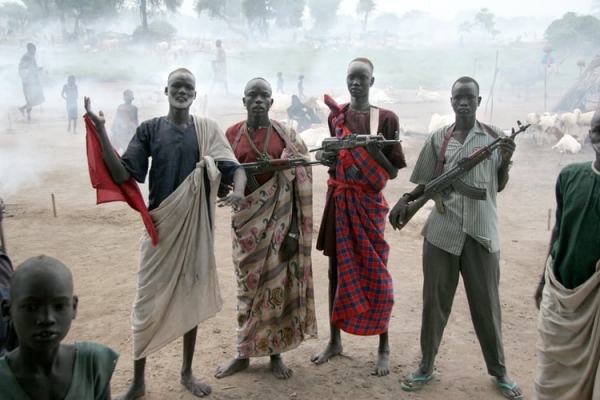Over the last month, violence escalated in South Sudan’s Equatoria region, killing civilians, and forcing thousands to flee their homes. Currently, around 235,000 and 50,000 civilians are displaced respectively in Central and Eastern Equatoria. These numbers are expected to increase as the conflict continues. Moreover, the threat of famine in the country is increasing as planting activities in Central Equatoria, an agriculturally fertile area considered to be South Sudan’s “bread basket”, came to a halt as farmers were forced to flee. Around 60 percent of the population in South Sudan, about 5.8 million people, is already facing acute food insecurity, and access to food is increasingly jeopardized, which could eventually result in a famine.
In Mid-March, the government of South Sudan commenced several security operations against the National Salvation Front (NAS), which operates in the southern part of Central Equatoria State. Besides this, rivalries of local communities in Eastern Equatoria are causing violent incidents, including robberies of NGO personnel and their property ; this adds to the already existing feeling of insecurity across the state. The increasing violence, both at the local and subnational levels, adds to the deterioration of the overall humanitarian situation in the country, leading to difficulties to meet basic humanitarian needs and impacting on the capacity of organizations active in the field to provide necessary assistance. According to the latest Report of the UN Secretary General on the UN Mission in South Sudan (UNMISS), an estimated 8.3 million people are in need of assistance, an increase by 800,000 since 2020.
Humanitarian organizations working in the field are urging for a coordinated response to assist displaced civilians. They scaled-up life-saving operations in areas where severe acute food insecurity prevail. Yet physical access to several areas remains challenging. Mark Millar, Policy Analyst for the Norwegian Refugee Council in South Sudan, called on all parties to “end violence and allow unfettered access to aid organisations, otherwise we risk witnessing a humanitarian crisis not seen in the country for years”. Furthermore, he reminded the parties who signed the recent peace agreement to adhere to their commitment to a return to a peaceful political process and to uphold international humanitarian law.
To learn more, please visit:
https://reliefweb.int/report/south-sudan/south-sudan-fresh-violence-exacerbates-famine-threat
https://www.nrc.no/news/2021/april/south-sudan-fresh-violence/
https://undocs.org/pdf?symbol=en/S/2021/172
Author: Michele Pitta







